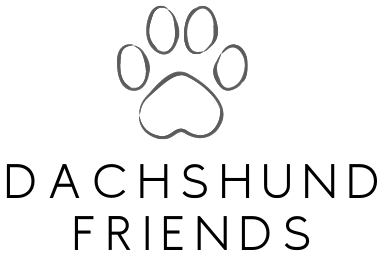Dog Vaccinations: What Vaccinations Does My Dachshund Need?
Vaccinations are one of the most important steps in protecting your dachshund from serious, infectious diseases. Just like humans, vaccines help dogs to to strengthen their immune system against harmful viruses and bacteria. For dachshunds, this protection starts early and continues throughout their life with annual boosters. Below, we’ll dive into the vaccination process for your dachshund, the diseases they protect against, and what to expect during vaccination appointments.
Why Are Vaccines Important for Your Dachshund?
Vaccinations expose your dog’s immune system to a small, controlled amount of bacteria or virus (usually in a modified or dead form). This teaches their immune system how to recognise and fight off the disease if encountered later in life. Not only does this protect your dog, but it also helps prevent the spread of infectious diseases within the wider dog community.
Vaccines for dogs in the UK cover infectious diseases such as:
Canine Parvovirus
Distemper
Canine Adenovirus
Leptospira
Additionally, while not considered part of the core vaccines, Kennel Cough is often recommended if your dachshund frequently interacts with other dogs. Similarly, the Rabies vaccine is required if you’re travelling abroad with your dog.
When Should You Vaccinate Your Dachshund Puppy?
Puppies typically begin their vaccination schedule between 6 and 8 weeks old, with a booster at 12 weeks, and sometimes another at 16 weeks, depending on your vet’s protocol.
When our boy Rocky came to us at 8 weeks old, he had started an initial vaccination course while with the breeder, however this differed to the vaccines offered by our vets, so we actually had to restart the course again. This meant that we had to keep him inside for an additional couple of weeks before we could start walking him. You should always wait until the full course is complete with the initial puppy vaccinations - usually two weeks after the second vaccine - before exposing them to any unvaccinated dogs (or doing so unknowingly out on walks) to ensure that your puppy is fully protected against disease at a time when they are most vulnerable.
Annual Vaccination Boosters
Once your dachshund has completed their initial vaccination schedule, they will need an annual booster to maintain immunity. Some vaccines last for a year, while others can last up to three years. As a result, your dog may not need every vaccine at each annual visit.
If you miss a booster, you may need to restart the entire vaccination course. This happened to us in 2022 when we missed a booster appointment due to COVID-19 restrictions. Our vet required an up-to-date vaccination record before dispensing routine medications like flea and worm treatments, which is how we realised our dog’s vaccination had lapsed. If you ever miss an appointment, it’s best to contact your vet as soon as possible to clarify their policy on missed boosters.
What Is Titre Testing?
Some veterinary practices offer titre testing, a blood test that measures the presence of antibodies in your dog’s system. This test can help determine whether a booster is truly necessary or if your dog already has enough immunity to skip the vaccine. While titre testing may help you save on costs by avoiding unnecessary boosters, it isn’t commonly used and tends to be more expensive than routine vaccination.
At our vet, we enrolled in their “Vaccines for Life” plan, which covers us for all future annual boosters at no additional cost after the initial fee. If you’re interested in titre testing or a more cost-effective vaccination plan, it’s worth discussing your options with your vet.
What Happens at a Vaccination Appointment?
Vaccination appointments are often combined with an annual health check. Your vet will weigh your dachshund, assess their general health, and ask about any behavioural changes or concerns. Following this, they will administer the necessary vaccine boosters.
Are There Any Side Effects?
Adverse reactions to vaccinations are rare, but some dogs may experience mild side effects. After receiving a booster, our dachshund Rocky tends to be a bit lethargic for 24 hours and occasionally develops a small lump at the injection site, which typically resolves within a few days.
Other dogs may have a reduced appetite or seem a little “off” for a short time after vaccination. If any reactions persist or seem severe, it’s important to contact your vet for advice.
Vaccinating your dachshund is a simple yet vital part of responsible pet ownership. Not only does it protect your dog from dangerous diseases, but it also helps to safeguard the health of other dogs in the community. Be sure to follow your vet’s guidance on vaccination schedules, boosters, and any additional vaccines that might be recommended for your dachshund’s lifestyle. With a little proactive care, you can ensure your dog stays happy, healthy, and protected for years to come.

